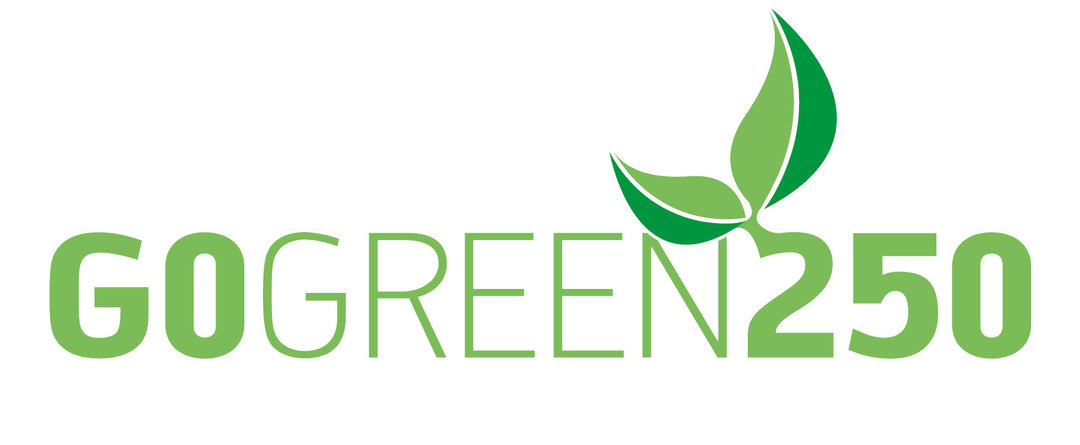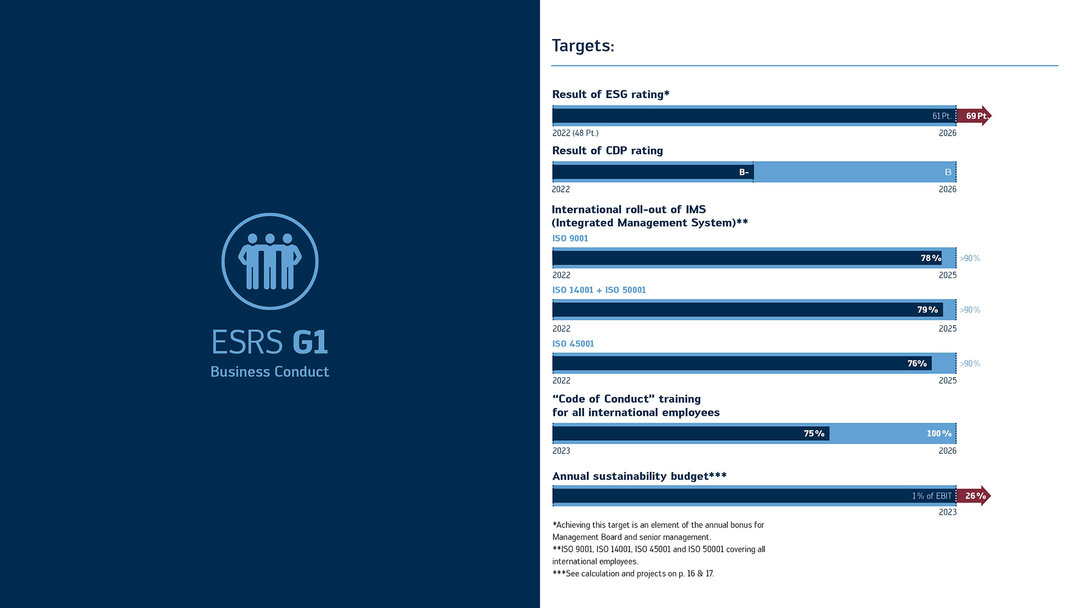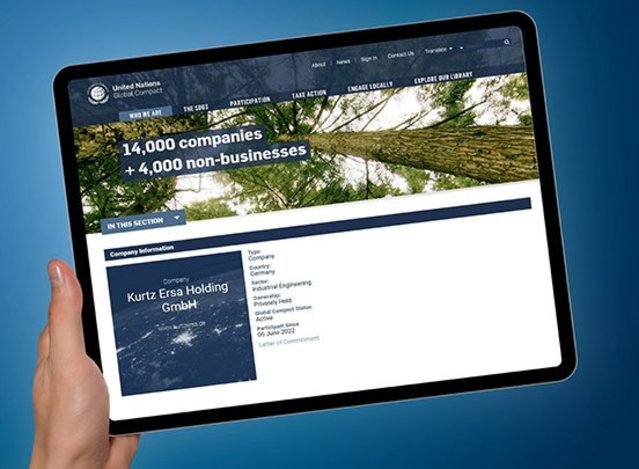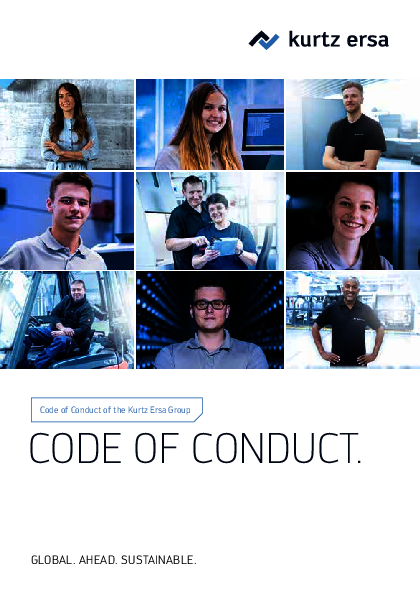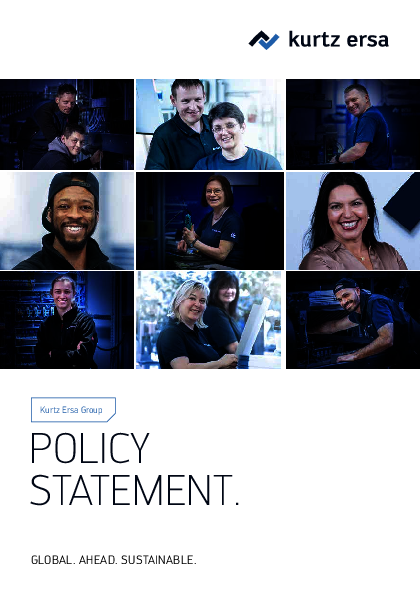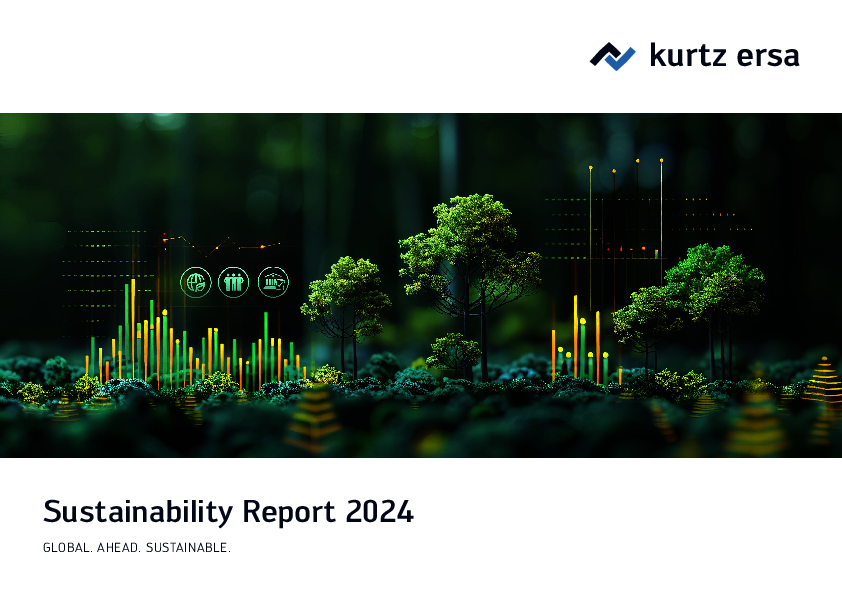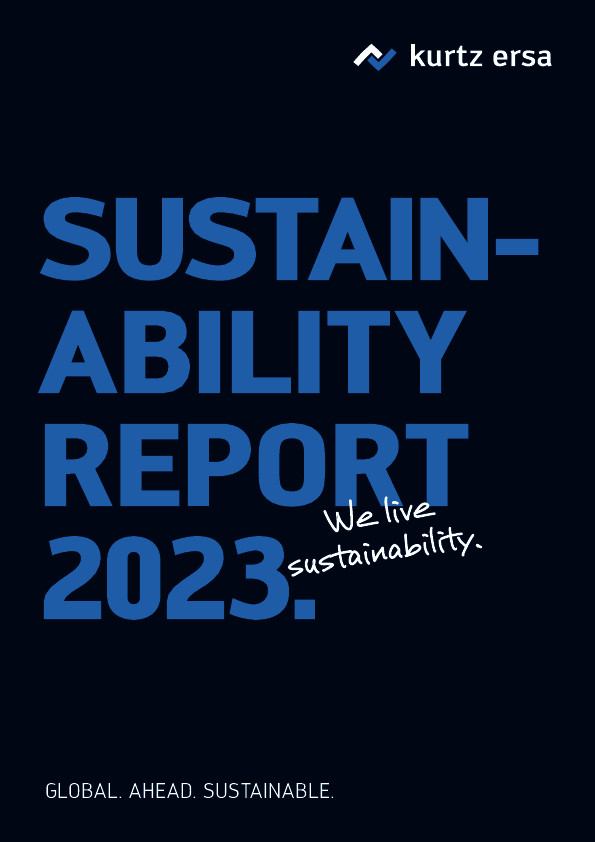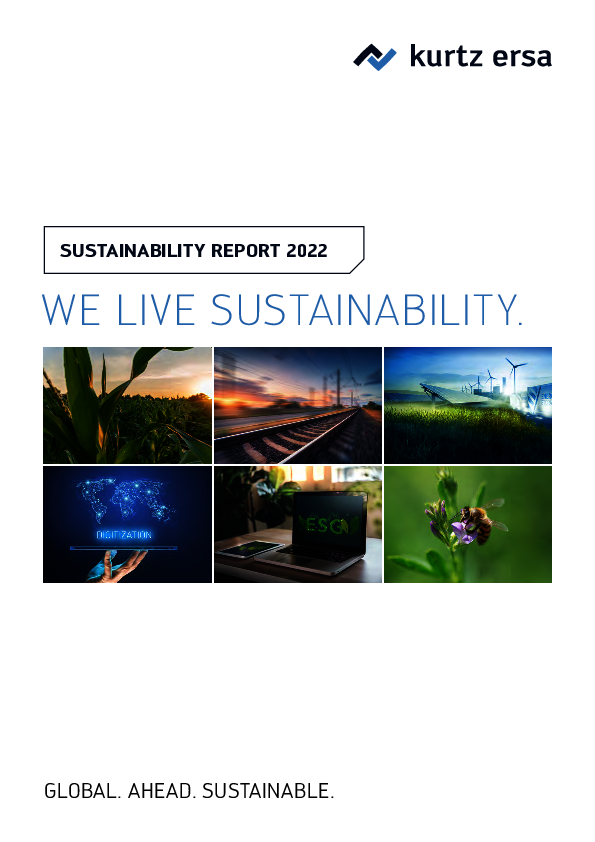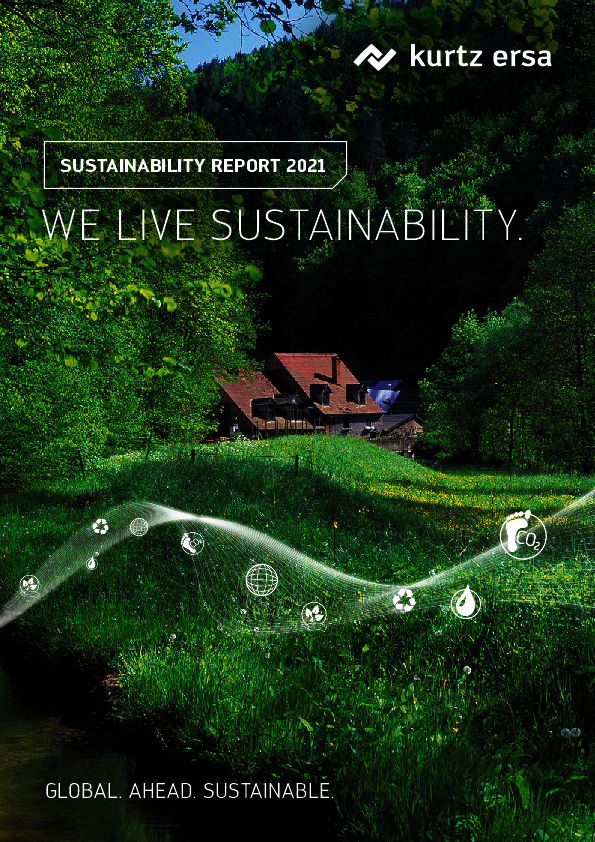Ethical standards
Transparency, integrity and responsible leadership are the cornerstones of our actions. We value a clear corporate structure, ethical standards and open communication. In this way, we create the basis for sustainable growth and the trust of our stakeholders.
If you would like to find out more about our path to becoming a more sustainable company, you will find further details below on our implemented and planned projects and activities, the targets we have set ourselves and the extent to which we have achieved them, as well as our key performance indicators.
Measures
Code of Conduct
Code of Conduct
The Kurtz Ersa Code of Conduct (CoC), which has been in force since 2023, formulates our standards for responsible corporate behavior, particularly with regard to ethics, integrity and sustainability as well as compliance with applicable law and voluntary commitments. The Code of Conduct applies to all employees of Kurtz Ersa and our business partners, especially our suppliers.
Important topics covered by the CoC include compliance with and ensuring compliance with ...
- human rights and compliance with social standards,
- occupational safety and labor law,
- environmental law, energy and climate protection,
- product safety,
- ethical behavior, integrity and anti-corruption.
In order to familiarize all employees with the content and individual subject areas of the CoC, they must take part in mandatory training courses. They have the opportunity to ask questions and also learn how they should react in the event of violations.
Complaints management / whistleblower protection
Sustainability-based special payment
Sustainability-based special payment
It is important to us to anchor awareness of sustainable processes and our commitment to implementing the GoGreen250 initiative even more firmly in our corporate actions. We have therefore linked part of the annual special payment for management and executives to sustainability criteria. We are guided by the ESG rating because it is an objective measure of a company´s environmental, social and governance (ESG) performance and is compiled annually by external experts. The implementation of key sustainability criteria has influenced our remuneration practices since 2023.
Risk management and climate risks
Risk management and climate risks
A structured, standardized risk management system helps to create transparency about existing risks and those that will be relevant in the near future, to assess them and to derive suitable measures for managing a risk. This also includes ESG risks. For prioritization purposes, risks are divided into three risk classes depending on the probability of occurrence and potential level of damage, and into five risk classes for ESG risks. A risk management process has been set up for reporting risks and reviewing the risk assessment at least once a year.
The Global Board of Kurtz Ersa is regularly informed about current risks and risk management in general as well as the status of the implementation of measures at steering committee meetings. In the event of relevant increases in risk outside the annual reporting cycle, an ad hoc report is submitted to the Global Board. The methodology and scope of risk assessment are constantly reviewed and optimized.
Approach / Strategy
Double materiality and stakeholder involvement
Double materiality and stakeholder involvement
In recent years, our sustainability reporting has been based on the requirements of the GRI standard. In future, we will base our reporting on the framework of the CSRD guideline, which will entail adjustments to the procedure for identifying the topics that are material for Kurtz Ersa. As required by the European Sustainability Reporting Standards (ESRS), we have therefore been pursuing the double materiality approach since the beginning of 2025. We therefore consider both the impacts of our business activities on people and the environment as well as the risks and opportunities that contribute to the Group´s financial stability. In our CSRD report, we describe in detail how we implemented the double materiality analysis for the first time and how we involved our relevant stakeholders in our approach.
Holistic and international approach
Holistic and international approach
For us, sustainability also means not looking at individual areas and topics in isolation. This holistic perspective is a prerequisite for efficient interaction between the individual ESG segments. It also allows us to exploit existing synergies and better weigh up the pros and cons. We also work closely with other central divisions in the holding company, other international divisions and specialists within the company as well as internal and external stakeholders.
This applies in particular to issues such as the EU Corporate Sustainability Reporting Directive (CSRD), the EU Taxonomy and the Supply Chain Due Diligence Act (LkSG), which can only be implemented in a targeted manner together with the affected or responsible stakeholders. At the same time, sustainability does not end at the German border for Kurtz Ersa. As a globally active group, we naturally also pursue an international approach. Whether sustainability reporting, ESG rating, CDP score or Code of Conduct, our activities and goals encompass all of Kurtz Ersa´s global locations.
Integrated Management System (IMS)
Integrated Management System (IMS)
An integrated management system (IMS) brings together several management systems in a uniform structure. This has the advantage that requirements from different areas can be bundled and synergies can be utilized. At Kurtz Ersa, this applies specifically to quality management (ISO 9001), environmental protection management (ISO 14001), occupational health and safety management (ISO 45001) and energy management (ISO 50001).
Our company processes have been becoming increasingly international and complex for years. In particular, their number, interfaces and effects are constantly increasing. For this reason, the majority of all workplaces are to be integrated via a standardized IMS - across the Group and regardless of national borders. By the end of 2026, we aim to have more than 90 percent of all global workplaces certified in accordance with ISO 14001, ISO 45001 and ISO 50001. The only exceptions to this are very small, international sales locations.
Compliance Management
Compliance Management
In summer 2023, we began setting up our compliance management system (CMS). The compliance office helps us to create transparency about (compliance) risks in the company, implement new and existing requirements in a legally compliant and efficient manner and raise awareness of compliance issues among our employees. Establishing a new compliance culture does not happen overnight, but requires structured implementation planning with fixed milestones. Our medium-term goal is to implement an appropriate and effective CMS globally, starting with the German sites.
For the international production sites, an external team of experts will support us in screening the relevant EHS (environmental, health and safety) requirements in the respective countries from 2025. Implementation will be documented and tracked in a workflow-based cloud application. A company-wide dashboard of all connected locations and countries is available for reporting purposes.
Social and community involvement
Social and community involvement
Kurtz Ersa fulfills its responsibility in many different ways. The focus of our social and community involvement is primarily on the Mainfranken region, where our headquarters are located and to which we have maintained close ties for generations. We see ourselves as part of society and want to play an active role in shaping it, above all as an attractive employer with secure jobs and as a reliable business partner. But we also take responsibility beyond our core business and consciously support projects that benefit the community and strengthen coexistence in the region. Long-term partnerships are important to us, as this is the only way to ensure reliable support.
We support external organizations and projects in the areas of social affairs, culture, education and training. We coordinate corresponding activities via the charitable Anna Göbel and Otto Kurtz Foundation. This was established in 2006 in memory of the former company boss and his sister.
Rating and memberships
ESG Rating
ESG Rating
Compared to the previous year, we increased our ESG rating in 2025 by 6 points to a total of 75 points - and once again received a silver medal in the EcoVadis Sustainability Rating.
An overview shows the current scores per area:
- Environment: 90 out of 100 points achieved
- Labor and human rights: 85 out of 100 points achieved
- Ethics: 53 out of 100 points achieved
- Sustainable procurement: 54 out of 100 points achieved
The bottom line is that in this year´s ESG rating, Kurtz Ersa is among the top 3% of companies in our industry that voluntarily contribute to sustainable development above and beyond the legal requirements. We will participate in the ESG rating again in subsequent years.
CDP Rating
CDP Rating
Kurtz Ersa achieves CDP Climate Score B- for the first time
After achieving a "C" score in the CDP climate change rating in 2022 and 2023, we improved to a "B-" score in 2024. We were able to make great strides forward, particularly in the areas of emissions, energy, governance and risk disclosure.
In 2024, Kurtz Ersa answered the "Water Security" questionnaire for the first time in addition to the "Climate Change" questionnaire and also achieved a score of "B-" at the first attempt.
The CDP is an international climate protection programme under which companies, institutions and organizations voluntarily provide information on the environmental impact of their activities. It is a non-profit organization that collects and evaluates data on harmful environmental impacts on an annual basis. After evaluating the data, each participating organization receives a rating.
UNGC membership
UNGC membership
Kurtz Ersa a member of the UN Global Compact since June 2022
Since June 6, 2022, the Kurtz Ersa Group has been a member of the UN Global Compact (UNGC). Kurtz Ersa thus voluntarily supports important developments on the global world market. The focus is on respecting human and employee rights, fighting corruption and protecting the environment.
The UN Global Compact is an association of politics and industry that aims to make globalization more social and ecological. Companies and research institutions, as well as local authorities and employee associations, undertake to comply with binding standards and follow the ten principles of the UN Global Compact.

